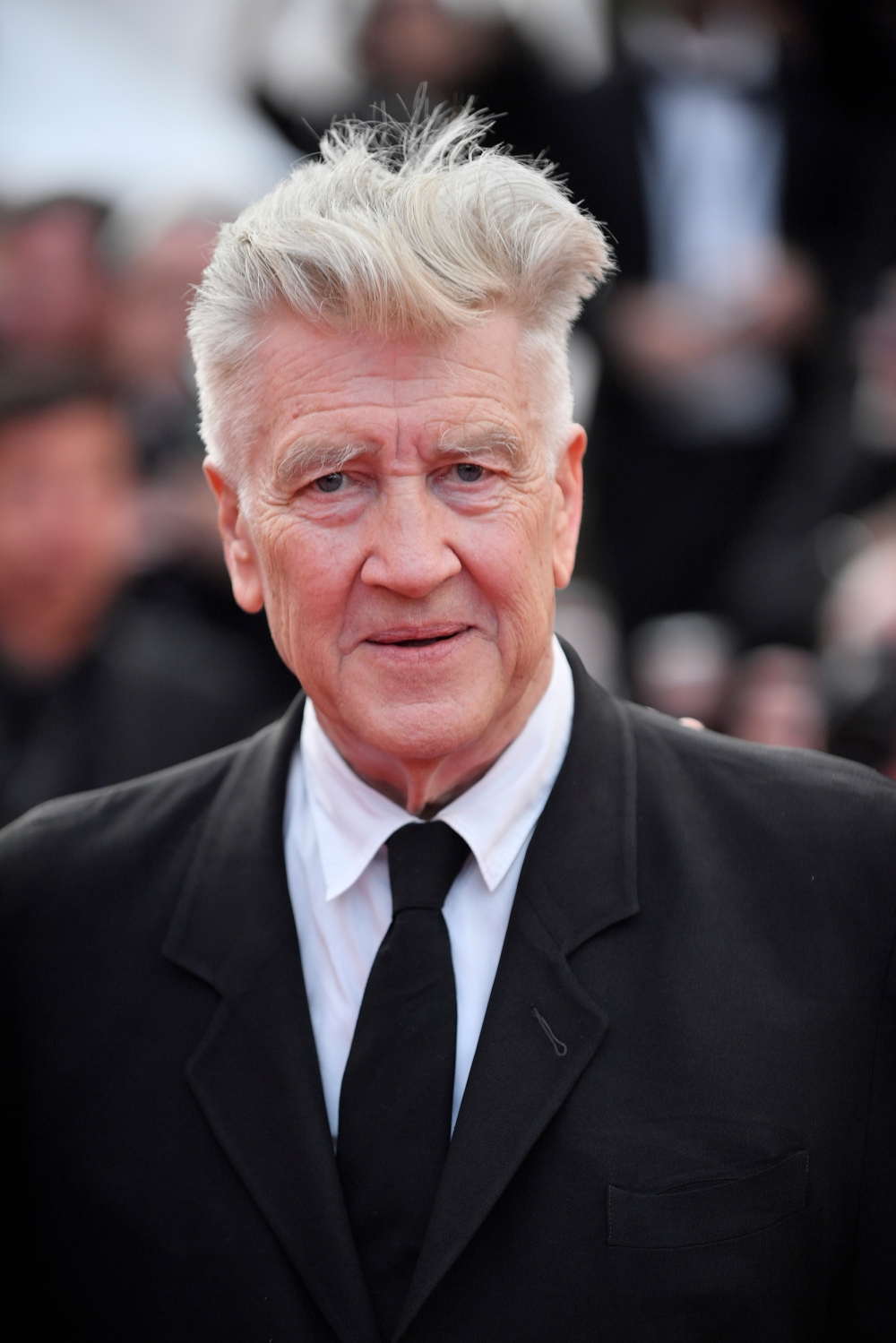
On January 15, local time, David Lynch, a famous Hollywood director who had directed films and TV series such as Blue Velvet, Lost Highway, Twin Peaks, Mulholland Drive, and Inland Empire, died of illness at the age of 78. David Lynch's family announced the sad news on his official social media account, which also made fans around the world who liked his works feel very surprised and sighed.

David Lynch. Image courtesy of Visual China
Lynch, who smokes all the time, revealed in an interview with Sight & Sound magazine last year that he suffered from emphysema and could no longer "go out". At the end of the year, he told People magazine that he often had difficulty breathing, "It felt like a plastic bag was over my head, and I was out of breath after just a few steps". According to Deadline, the recent severe wildfires in many parts of Los Angeles forced him to evacuate his home near Mulholland Drive in Hollywood, and his physical condition took a sharp turn for the worse, which ultimately led to his misfortune.
Having been in the industry for nearly sixty years, David Lynch is one of the most eccentric directors in Hollywood history. He started out by shooting experimental short films, and has completed a total of ten feature films, plus the landmark series Twin Peaks in the history of contemporary television. Almost all of his works have a distinct surrealist experimental style, but at the same time they are recognized by the mainstream of Hollywood. He has been nominated for the Academy Award for Best Director three times for Blue Velvet, The Elephant Man and Mulholland Drive, and won the Academy Award for Lifetime Achievement in 2019.

On October 28, 2019, local time, the Oscar Lifetime Achievement Award was presented in Hollywood, USA. Director David Lynch won the Oscar Lifetime Achievement Award. Visual China Data Map
David Lynch was born on January 20, 1946 in Missoula, Montana, USA, into a typical intellectual family. He had little interest in school courses since childhood, and spent almost all his spare time painting. After graduating from high school, he came to Philadelphia to study fine arts at the Pennsylvania Academy of Fine Arts. During this period, he completed his first experimental short film "Six Men Getting Sick" and married his classmate Peggy Reavey. Their love child, Jennifer Lynch, was born in 1968; later, she followed in her father's footsteps and became a director.
In 1971, Lynch moved to Los Angeles with his wife and daughter. Having accumulated a lot of experience in experimental filmmaking, he chose to study at the American Film Academy. Almost a year later, he began to plan his first feature film, Eraserhead. After four years of filming and production, in 1976, this experimental work presented in black and white film was finally completed. In order to make this film, he borrowed money from everywhere, did a lot of odd jobs, and his relationship with his wife Peggy Levy broke down because of the long separation, and eventually ended in divorce.
Lynch sent Eraserhead to the Cannes Film Festival in France and the New York Film Festival in the United States, but it was rejected because the plot was too obscure. Fortunately, the Los Angeles Film Festival selected it, giving Eraserhead a chance to show. In the 1970s, midnight screenings emerged in many major cities in the United States. A large number of low-cost art films and non-mainstream films won the love of young audiences with the help of this platform. In 1977, Eraserhead became a hot movie in the midnight screenings in the United States.

Eraserhead poster
Because of the influence of Eraserhead, comedy star Mel Brooks noticed David Lynch and decided to invite him to direct The Elephant Man. Starring John Hurt and Anthony Hopkins, the film tells the true story of Joseph Merrick, a star of the 19th century London "Freak Show". At the 53rd Academy Awards, the film received eight nominations including Best Picture, Best Director, and Best Actor, tied with Raging Bull for the most nominations. Although it ultimately returned empty-handed, for David Lynch, who had only made two feature films, the door to Hollywood had clearly been opened by him.

Poster of The Elephant Man
Sure enough, Lynch was soon offered to direct Star Wars: Return of the Jedi, but he rejected it outright. Rather than continuing George Lucas's creative sequel, he preferred to create his own sci-fi universe. So he planned to bring Frank Herbert's sci-fi masterpiece Dune to the screen. In 1984, Dune, which was invested and filmed by the famous Italian producer Dino De Laurentiis, was released, but failed to gain recognition from the audience. Lynch was also very disappointed because he was restricted in the directing process and did not even have the final editing rights.
When signing the contract with Dino De Laurentiis, the two parties agreed that in addition to Dune, they would also collaborate on an original work, with Lynch writing the script himself, but the budget had to be controlled within 5 to 6 million US dollars. So, in 1986, the black thriller Blue Velvet, which he wrote and directed, was released, and Lynch was nominated for the Best Director Oscar for the second time.

Blue Velvet poster
In the late 1980s, Lynch met TV producer Mark Frost and collaborated on the surrealist suspense series Twin Peaks. It successfully combined elements such as small-town comedy, gangster films, and surreal dreams, which was completely different from the various series that flooded American screens at the time, and attracted the attention of a new generation of TV viewers who were eager for freshness and excitement. In 1990, Lynch produced Twin Peaks Season 2 and directed the prequel Twin Peaks: Fire Walk With Me in 1992. 25 years later, in 2017, Lynch launched Twin Peaks Season 3, which was also the last important work of his directorial career.

Twin Peaks poster
During the production of the first season of Twin Peaks, Lynch had already begun adapting Barry Gifford's novel Wild at Heart, preparing to bring it to the screen. Starring Nicolas Cage and Laura Dern, the film combines modern road movies with many classic elements from The Wizard of Oz. At the 1990 Cannes Film Festival, the film defeated strong opponents such as Ju Dou and Cyrano de Bergerac, and was selected as the winner of the Palme d'Or by the jury led by Bertolucci.

Wild at Heart poster
In the late 1990s, Lynch released two films in a row with very different styles. The thriller Lost Highway, which broke the linear narrative, was bold and avant-garde, but the box office was not ideal; the simple and slow-paced The Straight Story, which tells the story of an old man driving an electric lawn mower across the United States, became the only G-rated film in Lynch's film career - that is, it is suitable for all audiences of all ages.
In 2000, ABC, which had collaborated with Lynch on Twin Peaks, decided to work with Lynch on a TV series called Mulholland Drive. The version Lynch submitted shocked the company's top executives: not only was the plot confusing, but even the smoking scenes in the show were unacceptable to them. Fortunately, not long after the project was shelved, Studio Canal, a French film company, decided to take over. They invested $7 million to help Lynch turn Mulholland Drive into a 146-minute movie.

Mulholland Drive poster
Mulholland Drive received great acclaim after its premiere at the 54th Cannes Film Festival in 2001, and Lynch was awarded the Best Director Award. Today, the film is recognized worldwide as one of the best films of the 21st century, and the various symbols and metaphors in the film have also generated a lot of topics that movie fans are happy to analyze and study. Inland Empire, released in 2006, continued the mystery and treacherous nature of Mulholland Drive, with a length of three hours. It also did not follow the traditional story timeline and became Lynch's last film.
In recent years, David Lynch has moved from behind the scenes to the front of the camera, playing various roles in other directors' works, the most famous of which includes playing the legendary Hollywood director John Ford in Spielberg's autobiographical film "Dream House".

Stills from Dream House
The achievements of David Lynch, who graduated from a professional school, in painting art cannot be ignored. Like his film and television works, Lynch's paintings are also bizarre and full of surreal absurdity. In his view, painting can be used as an extension of film language to express the world of subconsciousness and dreams.
Whether in his works or in various interviews, David Lynch never regards death as a destination, but as part of a cycle. He also said: "We cannot escape death, but we can try to live more authentically and fully."
